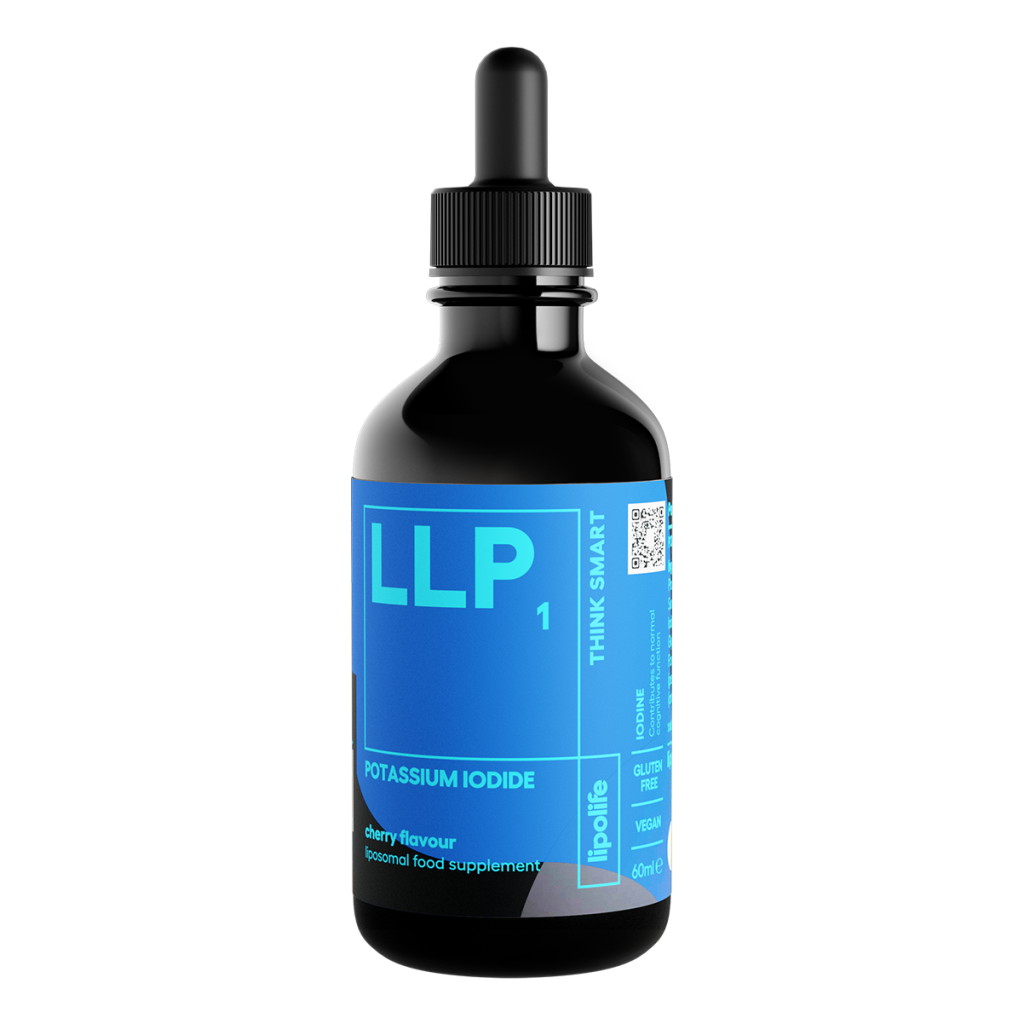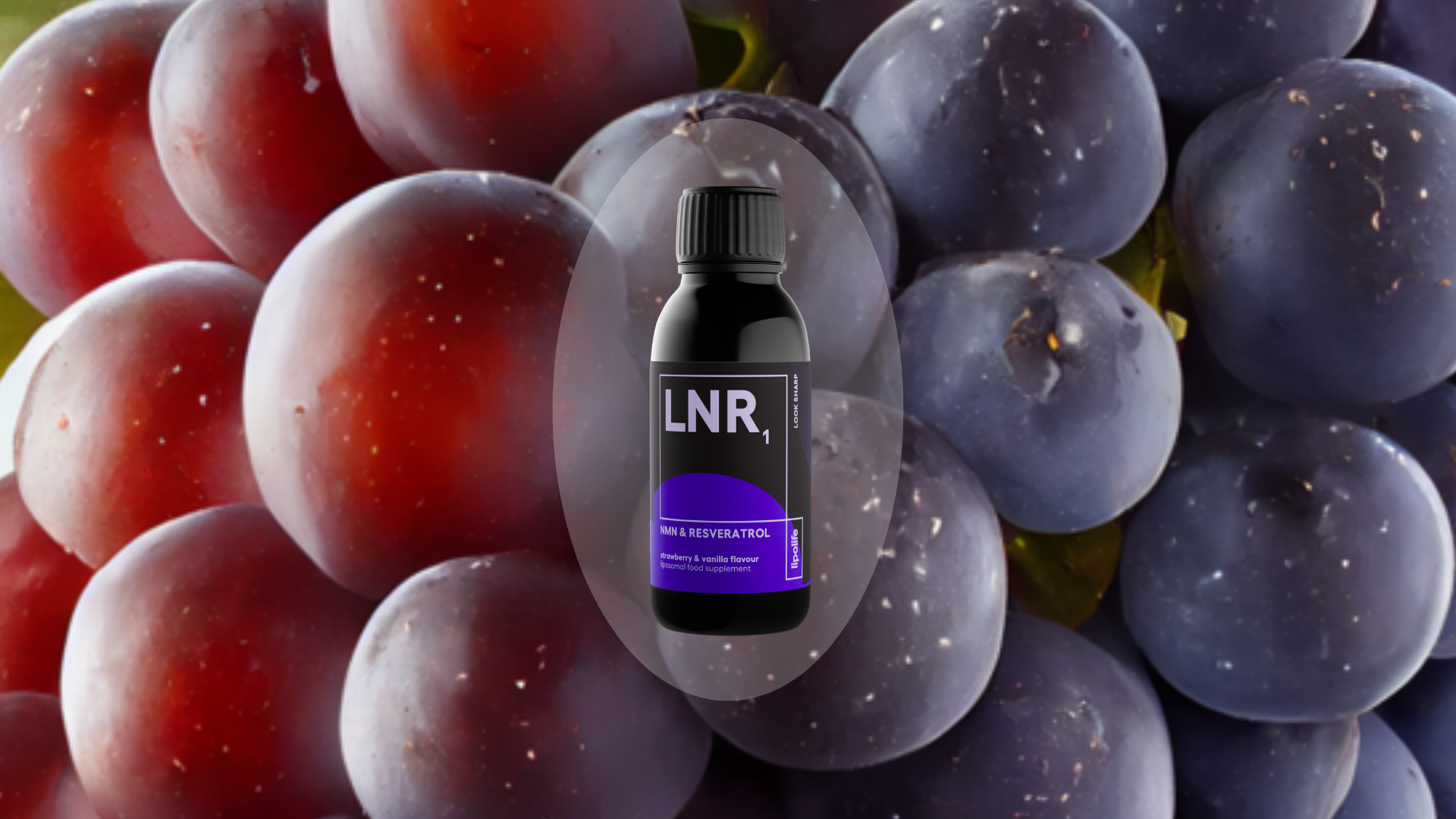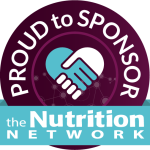4 Benefits of Liposomal Potassium Iodide
Date

This year, a new product joined the ranks of our liposomal supplement range when we released our LLP1 Potassium Iodide supplement back in April! But we know that potassium iodide might not be the first thing that comes to mind when you think of supplementing. So what exactly is potassium iodide and what are some of the benefits of taking it?
What is potassium iodide?
Potassium iodide – also known by its chemical formula, KI – is a salt form of iodine and a good source of iodine. Iodine is very important for the healthy functioning of the body, however our bodies can’t make their own iodine so we have to get it from an external source. Certain groups of people – such a pregnant women and vegans – are more at risk of iodine deficiency. For instance, the WHO recommended dietary iodine intake increases for pregnant and breastfeeding women. In the UK, much of our iodine intake comes from dairy products, eggs, and sea food so The Vegan Society recommends that vegans consider taking iodine supplements. Fortunately, the likelihood of being severely iodine deficient is low in the UK but there is some evidence to suggest that mild or moderate iodine deficiency isn’t uncommon. However, if you’re considering supplementing with potassium iodide, please speak to a medical professional first as too much iodine can also be dangerous.
What are the benefits of supplementing potassium iodide?
With that in mind, here are four things our body needs iodine for:
- IT’S ESSENTIAL FOR THE PRODUCTION OF THYROID HORMONES AND THYROID FUNCTION
Iodine is needed to produce the hormones, thyroxine and triiodothyronine, which are known together as ‘thyroid hormone’ and are partly made up of iodine. Severe iodine deficiency is one cause of a condition called hypothyroidism where the thyroid can’t produce enough thyroid hormone. Symptoms include fatigue, constipation, depression, sensitivity to cold, an increase in weight, dry skin, and weak hair and nails. (Read a full list of symptoms here.) It can also lead to a swelling in the neck called a goitre. Mild or moderate iodine deficiency can actually lead to a condition called hyperthyroidism, where the thyroid ends up producing too much thyroid hormone. So it’s important to get enough iodine!
Potassium iodide can help to treat hyperthyroidism (where too much thyroid hormone is produced). It’s also used to help protect the thyroid when the thyroid has or will be exposed to radioactivity in the form of radioactive iodine; this might be because of medical treatments involving radioactive iodine or, in more extreme situations, in the case of nuclear fallout. But taking too much potassium iodide can actually cause hypothyroidism (or worsen the condition if it’s not caused by an iodine deficiency), which is one of the reasons its best to consult with a doctor before taking it regularly.
- IT SUPPORTS A HEALTHY METABOLISM
One of the main things the thyroid does is to regulate our metabolic rate. It does this by releasing thyroid hormone which, as we know, needs iodine to be produced! Our metabolic rate includes the rate at which our bodies release energy from calories; this is the energy which keeps the body and its cells functioning so, if our metabolism isn’t working well, this has an impact on all sorts of things. A healthy metabolic rate helps to regulate body temperature, heart rate, and weight properly. It also affects the digestive system and the skin, and helps your organs function.
- IT SUPPORTS HEALTHY SKIN AND HAIR
As we’ve seen, iodine is vital for the production of thyroid hormone – and thyroid hormone has an impact on our skin and hair. Both too much or too little thyroid hormone can lead to hair loss and hair becoming brittle. And thyroid hormone also has an impact on the skin as it regulates the renewal of skin cells.
- IT SUPPORTS COGNITIVE DEVELOPMENT AND FUNCTIONING
Thyroid hormone is also needed for brain development and function so an iodine deficiency at key developmental stages can lead to babies and children having impaired mental function. Severe hypothyroidism is also linked to a decrease in cognitive function for adults, including an effect on mood and memory. Severe iodine deficiency is thought to be the leading, preventable cause of brain damage for fetuses and infants in the world! (You can read more about the science behind that here.) And some research suggests that even milder iodine deficiencies can affect the cognitive development of children although the results aren’t conclusive and more research is needed. During pregnancy, the baby receives iodine from the mother so pregnant women should make sure that their iodine levels are sufficient.
Research indicates that having sufficient levels of iodine in the run up to pregnancy has more of a positive effect than only starting to increase your iodine intake when you get pregnant – s if you are planning on becoming pregnant in the future, it’s something to start thinking about now! Iodine is also transferred to the baby through breastmilk when breastfeeding, and sufficient iodine levels are important for babies and young children as well! But make sure you talk to a doctor before supplementing with potassium iodide during pregnancy or breastfeeding – or giving supplements to a child – because too much iodine can also have a detrimental effect!
Why liposomal potassium iodide?
Liposomal supplements work differently from standard oral supplements. A liposome is a tiny, nano-sized bubble. The outside is made of phospholipids and it carries the supplemented vitamin or mineral inside it. When ordinary oral supplements enter the digestive system, large amounts of the nutrients – sometimes up to 80% or 90% – can simply be broken down and passed out of the body as waste without you reaping the benefits. In contrast, the phospholipid exterior of a liposome protects the nutrients it’s carrying from the strong acid in the stomach and, because cell membranes within the body also contain phospholipids, the body recognises the liposomes and allows them to be absorbed into systemic circulation! The vitamin or mineral supplement can then be released directly into the cells and tissues. This means that liposomal supplements are much more bioavailable than standard oral supplements i.e. more of the supplement is absorbed by the body. A study we carried out using our liposomal LVC2 Vitamin C indicated that it achieved over 200% the absorption of a standard oral supplement. That’s not bad.
Our liposomal LLP1 Potassium Iodide comes in the form of a tasty, cherry-flavoured liquid which contains roughly 16mg of potassium iodide per 1ml – plus it’s vegan! Ready to start supplementing?





